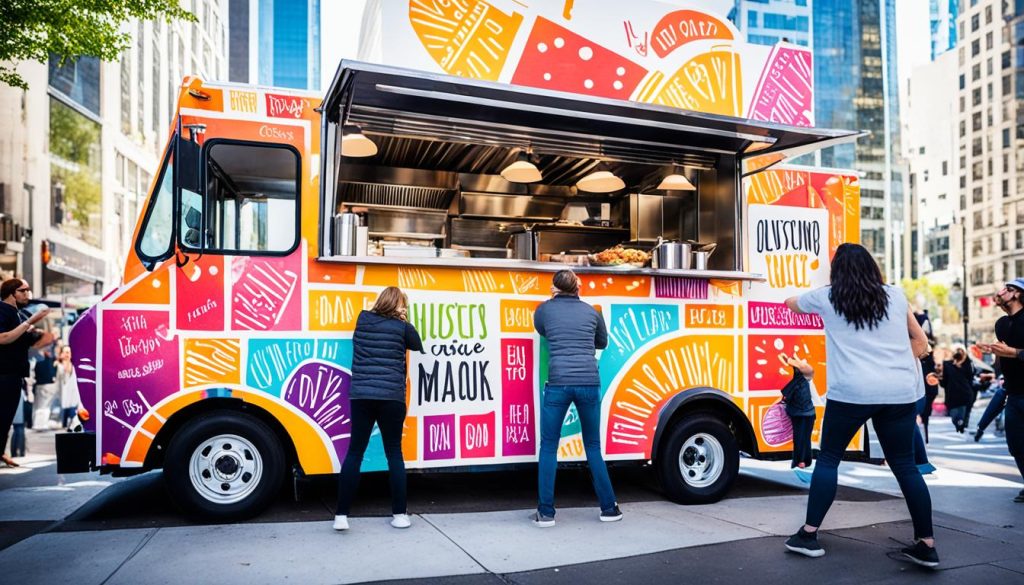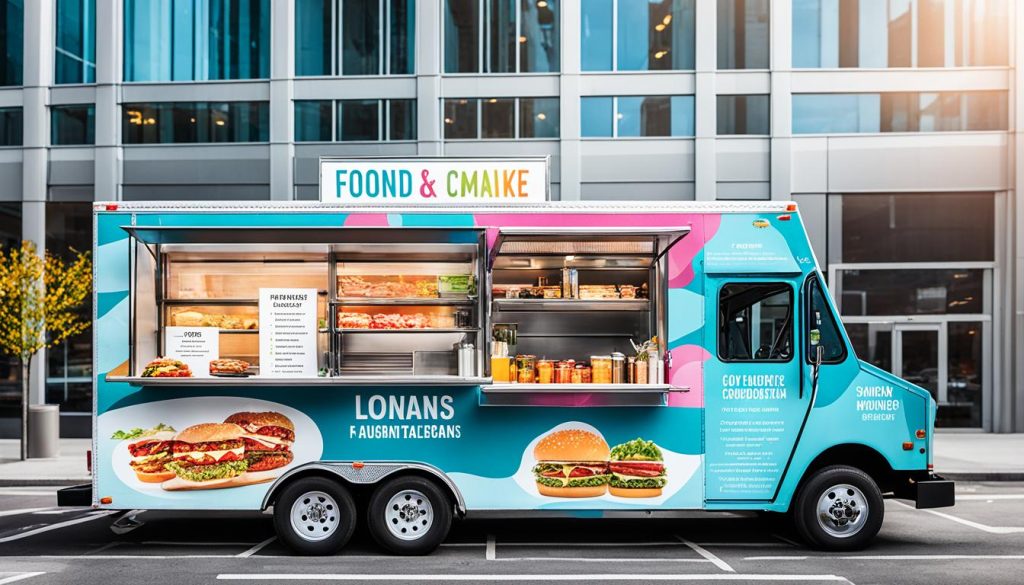Starting a food truck business can be a lucrative venture in the UK. If you have a passion for food and a desire to connect with customers in unique locations, a food truck business might be the perfect fit for you. In this guide, we will walk you through the essential steps to get your food truck up and running in the UK.
How to Start a Food Truck Business?
Choosing Your Niche and Creating a Food Truck Business Plan
Before you embark on your food truck business journey, it’s crucial to select a niche and develop a comprehensive business plan. This will guide you in creating a unique and successful food truck venture. Consider exploring popular cuisines like burgers and hot dogs, pizza, fish and chips, or breakfast sandwiches, or venture into less common street food cuisines to stand out from the competition.
To ensure a solid foundation for your business, your food truck business plan should include several key elements:
- Executive summary: Provide an overview of your business, its goals, and your vision for success.
- Company description: Describe your food truck concept, target market, and competitive advantages.
- Market analysis: Conduct thorough research on current market trends, including customer preferences, industry opportunities, and potential challenges.
- Competitive analysis: Identify your competitors, their strengths and weaknesses, and how you will differentiate your food truck from them.
- Description of services: Outline the types of food you will offer, the quality of ingredients, and any unique or signature dishes.
- Marketing plan: Detail your strategies for promoting your food truck, including social media presence, online advertising, and partnerships with local businesses or events.
- Financial projections: Provide a realistic forecast of your expected income, expenses, and profitability.
- Funding request: If necessary, clearly articulate your financial needs and how funding will be used to support your food truck business.
Conducting market research and analysis is critical to understanding your target market’s preferences and tailoring your menu and marketing strategies accordingly. This insight will help you make informed decisions and position your food truck for success.

Setting a Budget and Financing Options
When starting a food truck business, setting a budget is essential to ensure financial stability and success. You’ll need to consider various costs and expenses associated with your venture, such as food truck start-up costs, food truck equipment costs, food truck licences and certificates, food truck insurance, food and packaging costs, food truck wages, payment systems, running costs, and maintenance costs.
Food truck start-up costs: The costs of starting a food truck business can vary depending on factors such as the size of the truck and its condition. The total start-up costs can range from £5,000 to £50,000 or more.
Food truck equipment costs: Investing in high-quality equipment and cooking appliances is crucial for delivering delicious food and ensuring smooth operations. Consider the costs of purchasing or leasing the necessary equipment for your food truck kitchen.
Food truck licences and certificates: To legally operate a food truck and comply with regulations, you’ll need to obtain the required licences and certificates. The costs of these licences may vary depending on your location.
Food truck insurance: Protecting your business with insurance coverage is essential. Consider the costs of insurance policies that cover liability, property damage, and other potential risks.
Food truck food and packaging costs: Calculating the costs of ingredients and packaging materials is vital to determine your pricing strategy and ensure profitability. Consider the ongoing expenses for sourcing high-quality ingredients, as well as the costs of eco-friendly or branded packaging.
Food truck wages: If you plan to hire employees to help with your food truck operations, you’ll need to factor in the costs of wages and payroll taxes.
Food truck payment systems: Offering various payment options, such as cash, card, or mobile payments, is crucial for customer convenience. Consider the costs associated with setting up and maintaining payment systems.
Food truck running costs: Running costs include expenses like fuel, vehicle maintenance, propane, permits for operating in different locations, and marketing materials.
Food truck maintenance costs: Regular maintenance of your food truck is essential to keep it in optimal condition. Budget for costs related to vehicle repairs, equipment servicing, and general maintenance.
Once you have determined your budget, you’ll need to explore financing options to cover these expenses. Financing options can include:
- Business loans from banks or other financial institutions.
- Grants or funding opportunities specifically tailored for food truck businesses.
- Using your own savings or personal funds to finance the start-up costs.
- Seeking investors or partners who are interested in supporting your food truck venture.
Taking the time to carefully budget and explore financing options will help you establish a solid foundation for your food truck business and increase your chances of long-term success.

Getting Licensed and Registering Your Food Truck Business
Before you can start operating your food truck business, it is crucial to ensure that you are properly licensed and registered with the relevant authorities. This step is important for complying with food truck regulations and establishing your business legally in the UK.
- Registration with Your Local Authority: To begin the process, you need to register your food truck business with your local authority. This registration should be done at least 28 days before you plan to start trading. Contact your local council to obtain the necessary forms and information regarding the registration process.
- Obtaining a Food Business License: In addition to registration, obtaining a food business license is essential for meeting the requirements of food hygiene regulations. This license ensures that your food truck operates safely and follows appropriate hygiene practices.
- Costs and Fees: The costs of food truck licenses and registrations may vary depending on your location. It is recommended to contact your local council or licensing authority to inquire about the specific fees and requirements applicable to your area.
- Compliance with Regulations: Running a food truck business involves complying with health and safety regulations, waste disposal guidelines, and proper training in food preparation. Ensure that you and your employees receive the necessary training and certifications to operate your food truck safely and legally.
Image:

Remember to contact your local council for specific requirements and guidelines relevant to your food truck business. Adhering to the necessary licensing and registration processes will give you the legal standing and credibility to operate your food truck in the UK.
Conclusion
Starting a food truck business in the UK can be an exciting and profitable venture. By following the necessary steps such as setting up your business legally, developing a menu, marketing effectively, managing finances, and obtaining the required licenses, you can establish a successful food truck business.
Thorough market research, creating a comprehensive business plan, and budgeting wisely for start-up and ongoing expenses are crucial for long-term success. With careful planning and execution, you can embark on a culinary journey and fulfill your dream of running a food truck business in the UK.
Remember to cater to the preferences and dietary requirements of your target market, finding your niche and standing out from the competition. Utilize social media platforms and creative packaging to effectively market your business and attract customers. Additionally, ensure that you comply with all health and safety regulations, waste disposal, and proper training in food preparation. Contact your local council for specific requirements and guidelines.
Get ready for an adventure in the UK’s culinary scene. Start your food truck business today and bring delicious and unique offerings to hungry customers on the streets. With passion, dedication, and strategic planning, your food truck business can thrive and bring joy to food enthusiasts across the country.





